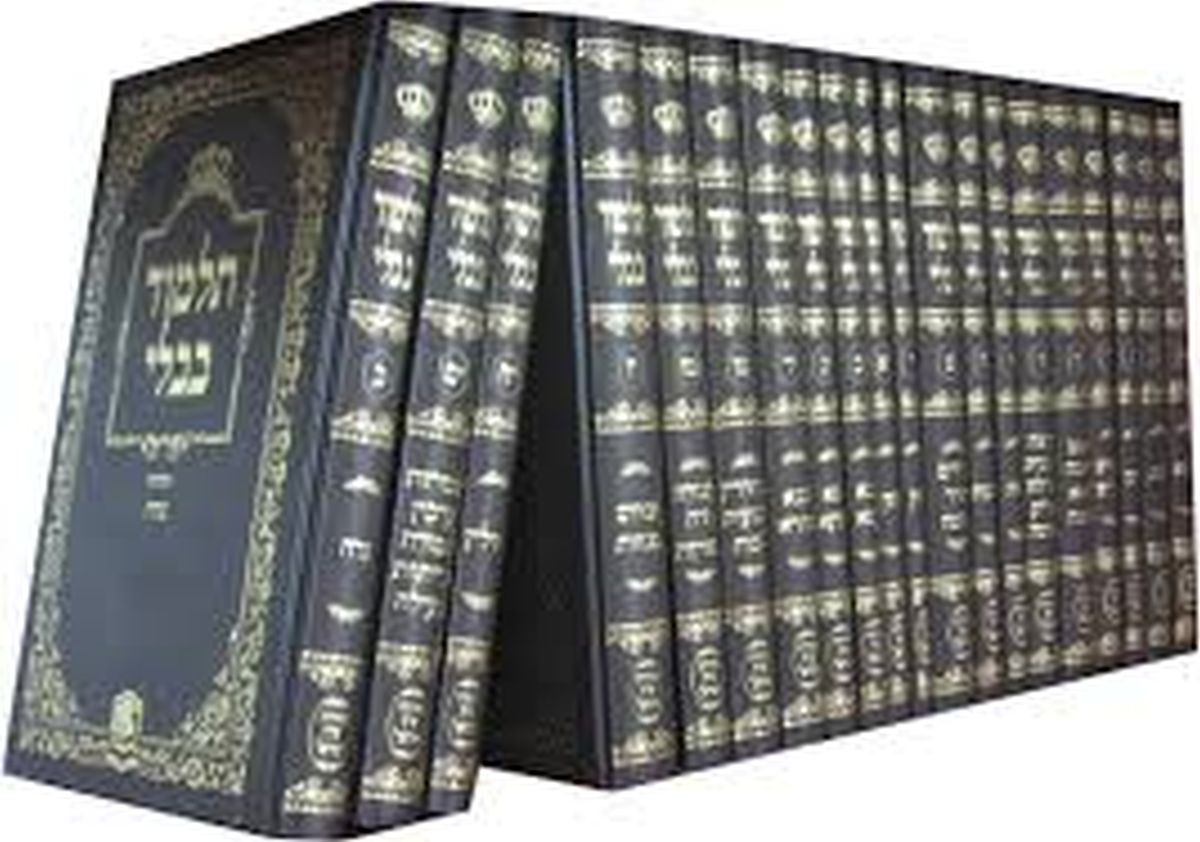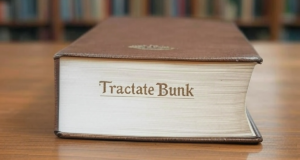Some members of the Badatz are instructing their disciples and followers to disdain the earlier Jerusalem Talmud as well.
 Bnei Brak, February 15 – A group of spiritual authorities has barred the study of Talmud because the work states that Moses was not the author of some of the Torah’s Verses.
Bnei Brak, February 15 – A group of spiritual authorities has barred the study of Talmud because the work states that Moses was not the author of some of the Torah’s Verses.
The Badatz Chochmas HaKsil pronounced its ban this morning after reviewing complaints that the classic text, which stands at the heart of Jewish learning and practice, betrays signs of heresy. Specifically, the Badatz reacted to a passage in Tractate Bava Batra 16a where authorship of the last eight verses of the Book of Deuteronomy is attributed to Joshua. The verses describe the death of Moses and its aftermath.
While a dissenting view is brought in the lines that follow, the fact that the editors of the Babylonian Talmud could entertain such a heretical notion was sufficient cause for the Badatz to outlaw its study. “The implication in the passage contradicts many generations of accepted doctrine, all the way back to the Rambam,” read the group’s ruling. Rambam is the Hebrew acronym for Maimonides, a twelfth-century scholar of towering reputation and lasting influence on Jewish law. “The Rambam’s Thirteen Principles are explicit in their declaration that the entire Torah we have was written by Moses. Anyone who thinks otherwise is outside the accepted bounds of tradition.” The Talmud was compiled and edited in the sixth century.
While the ban applies specifically to the more widely-known Babylonian Talmud, some members of the Badatz are instructing their disciples and followers to disdain the earlier Jerusalem Talmud as well. “One cannot be too careful,” explained Rabbi Mendel Ishuz. “Studying the Yerushalmi is closely associated with studying the Bavli, and if we allow people to study the Yerushalmi it’s all but inevitable that they’ll study the Bavli, which means they might encounter the offending passage in Bava Basra, and that could undermine everything. It might even lead to mixed dancing.”
Previously, the Badatz Chochmas HaKsil announced it was forbidden to use a telephone, lest the device facilitate lashon hara, talk of someone else’s negative attributes or behavior. A mini-scandal erupted last June after a member of the organization, Rabbi Tzvi Ut, was photographed with an old rotary phone on the desk in his study. The uproar persisted despite the phone’s lack of connection to a wall socket, and despite the phone company’s phasing out of pulse-dial technology. In response to the scandal, the Badatz declared air conditioner remote controls off-limits because they bear too close a resemblance to some phones, which might lead to confusion and transgression.
Please support our work through Patreon.




